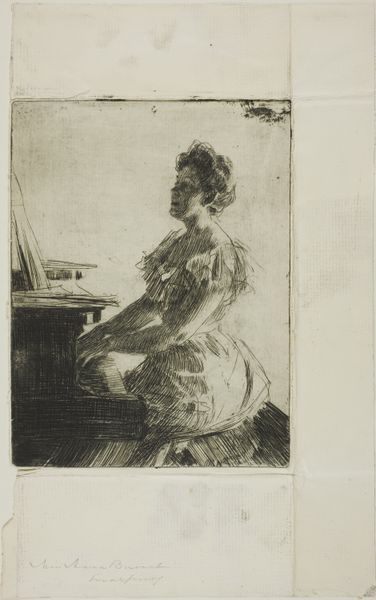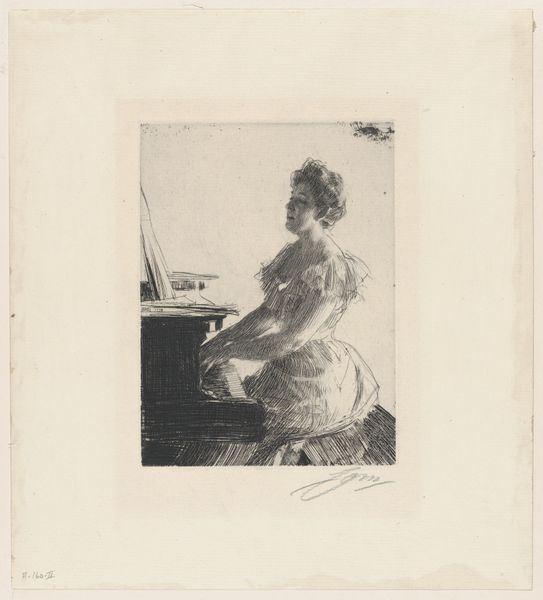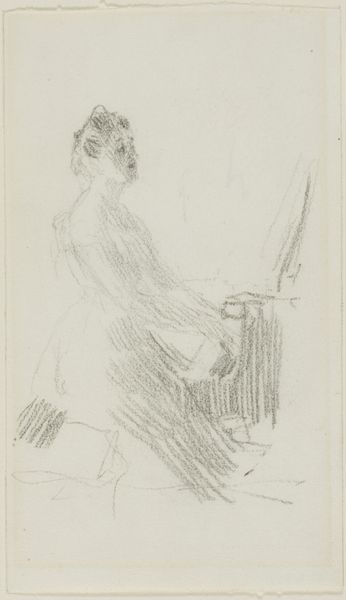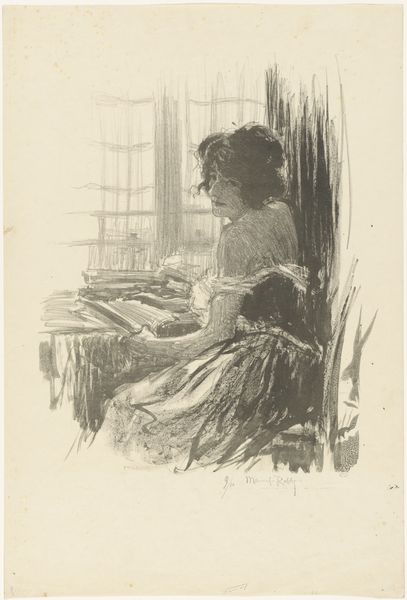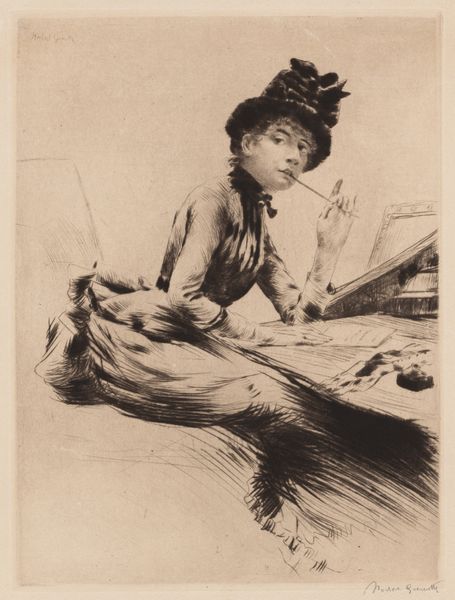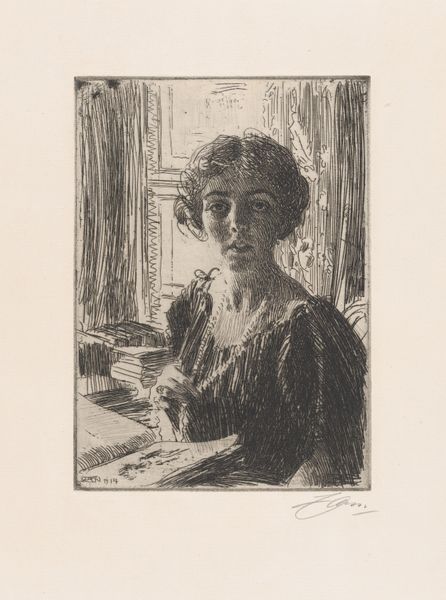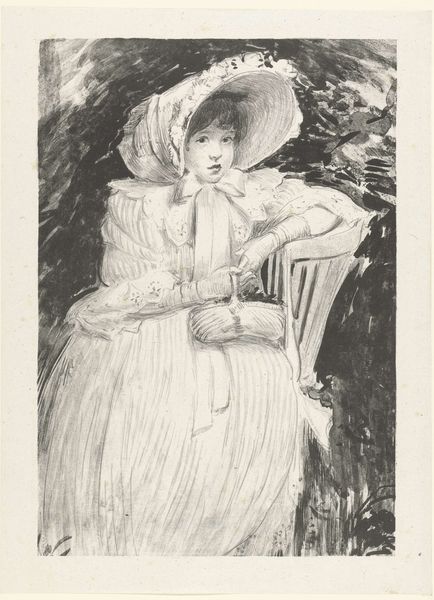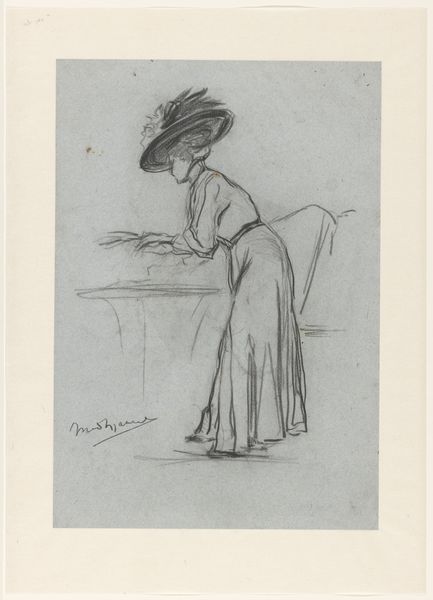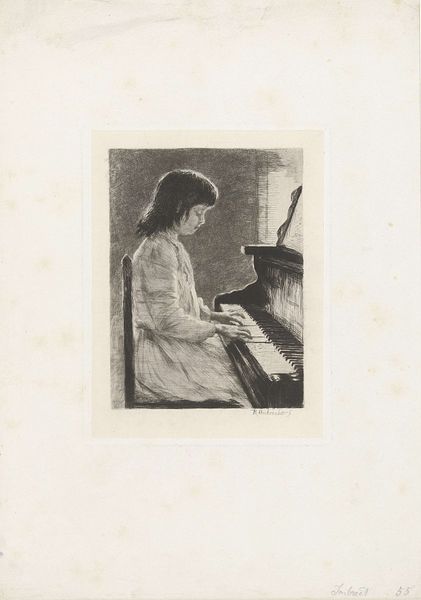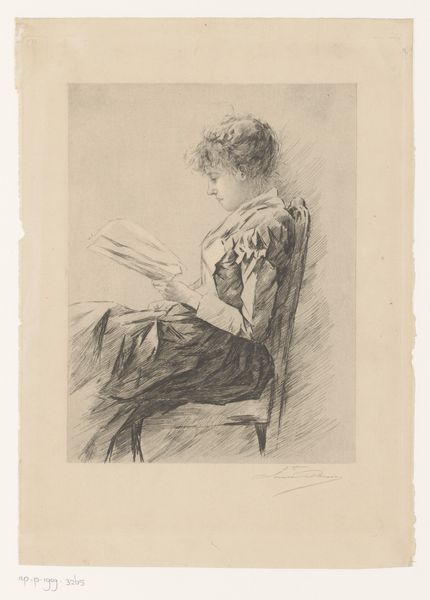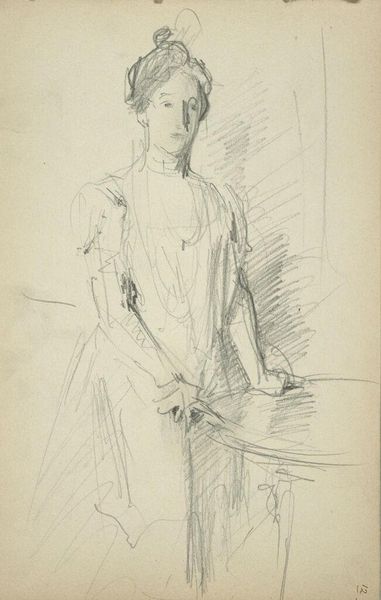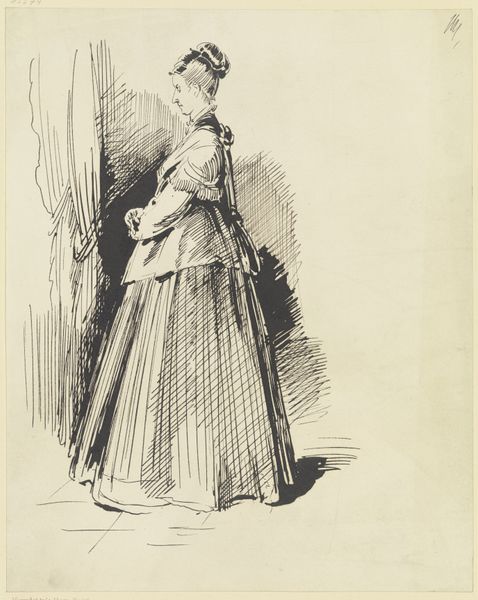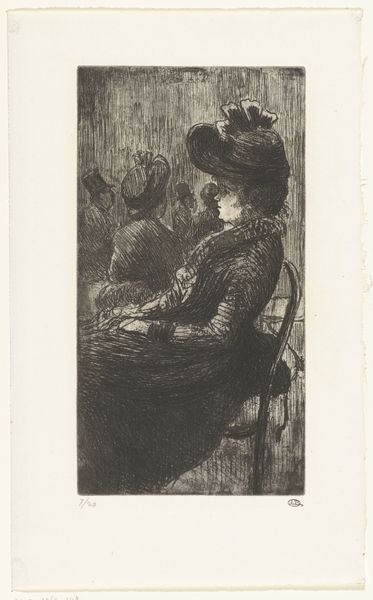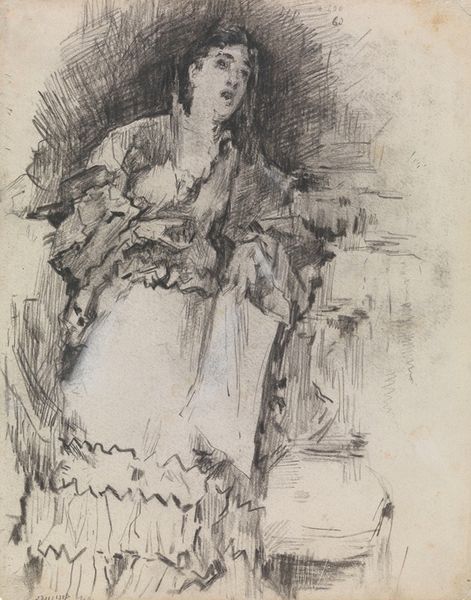
Dimensions: 19.7 x 14.9 cm
Copyright: Public domain
Curator: This is Anders Zorn's etching "At the Piano," created around 1900. It's a beautiful example of his printmaking. Editor: It strikes me immediately as conveying a certain contained melancholy. The gray-scale palette feels very somber. Curator: Absolutely. Etchings in this era often evoke introspection, and Zorn uses line work that pushes the tonal range of the gray ink to full potential. Do you notice how her averted gaze denies us direct contact? Editor: Yes, and this compositional choice seems indicative of the time period, reflecting constraints on women as they express themselves within a prescribed societal role. The home, music--acceptable outlets. Curator: I agree that we can understand the Symbolist idea of emotional suppression as reflected in a woman's controlled public demeanor. Musical performance at that time represented cultured accomplishments and inner life. Editor: What symbols do you detect that point to inner contemplation specifically? Curator: Her posture and downcast eyes do evoke introspection, or perhaps a form of internalized self-policing. In this era the cultural memory of a “Gibson Girl” type idealized female was emerging. And music in general serves as the echo of unspoken sentiments. The very act of performing it translates emotions which would be difficult to verbalize directly. Editor: You touched on a key point. This is further solidified by the artist's style—it is Impressionist with visible line work that is not meant to be totally photorealistic but expressive. Even this very piece suggests she has permission to “perform” at an instrument that might lead to creative empowerment and maybe even revolution if expanded outwards. Curator: An intriguing reading of it, looking at her performance of music not as repression, but possible agency! I had viewed it more as revealing hidden longing and constraints imposed by bourgeois life at the turn of the century. Editor: Ultimately, doesn't art like this encourage such diverse, subjective perspectives and readings? Curator: Indeed. Perhaps the strongest power lies in what remains unseen and felt.
Comments
No comments
Be the first to comment and join the conversation on the ultimate creative platform.
